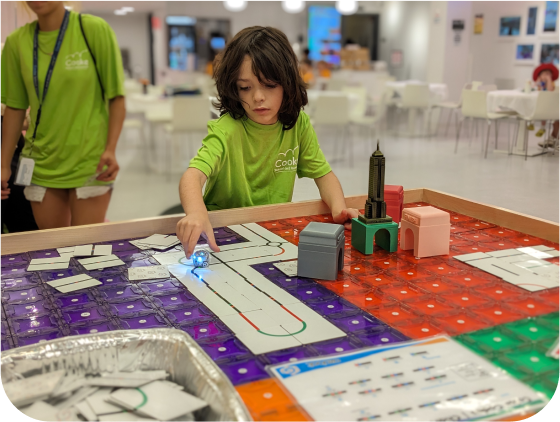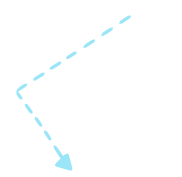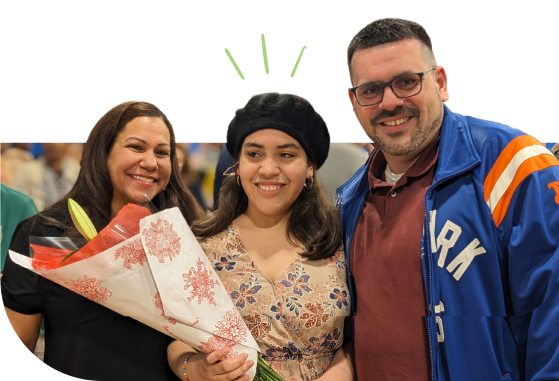

The K-12 English Language Arts curriculum is carefully designed to support the acquisition of reading, writing, listening, and speaking skills.
In Lower School, teachers work closely with related service providers to establish the foundations for academic success during daily ELA blocks and throughout the day. Teachers develop and target literacy goals using play-based, multisensory, sequential, and research-based methodologies. Students interact with and create diverse texts in a variety of ways as they build word recognition (e.g., phonological awareness, decoding, spelling, sight word recognition, etc.) and language comprehension (e.g., concepts of print, text structures, vocabulary, language structures, etc.). Students receive instruction in small groups to enhance the individualization of learning. Literacy skills are developed through teacher modeling, direct instruction, guided practice, and collaborative small group work.
Throughout Middle and Upper School, students continue to learn about the craft and structure of narrative, informative, and argumentative texts each day in ELA. Additionally, students access different modes and genres of literacy to acquire knowledge from diverse perspectives to effectively communicate ideas, opinions, and beliefs. Literacy skills necessary to access community resources are integrated into the units of study. Explicit word study designed to strengthen decoding and vocabulary continues to be areas of focus. Meaningful integration of educational technology tools supports the student’s access to the literacy curriculum. The curriculum is designed to help students use these skills in various contexts consistent with practical, real-world applications.
The K-12 Mathematics program at the Cooke School is aligned with its mission of “independence through education.” The mathematics curriculum is focused on the development of the five strands of mathematical proficiency: procedural fluency, conceptual understanding, strategic competence, adaptive reasoning, and productive disposition. To establish these skills, mathematics instruction is differentiated to meet the needs of each student and targeted to their individualized instructional level. The mathematics curriculum is guided by the New York State Next Generation Mathematics Learning Standards when appropriate. In K-12 mathematics classrooms at Cooke, students are regularly engaged in multimodal instruction that focuses on exposing students to a wide variety of mathematical content such as: counting and cardinality, numbers and operations, problem-solving, geometry, measurement, data science, algebraic thinking, and financial literacy. The math department presumes the competence of all students and works to provide each student with access to engaging environments of rich mathematical learning. K-12 mathematics instruction is consistently balanced between the progression of mathematical proficiency and community inclusion through project-based, problem-based, and inquiry-based learning experiences.
The K-12 Social Studies curriculum begins in Lower School as explorations of self and community. Students begin learning about personal and local (e.g., school) communities and then expand in scope across the years to diverse communities around the world. Students explore concepts of geography, economics, government, civics, and history in accessible and personal ways.
Using a constructivist approach to curriculum planning, the Middle and Upper School Social Studies teams explore the experiences of humans across time and contexts to develop an understanding of diverse perspectives, with cognitive, emotional, and compassionate empathy. The Social Studies curriculum is designed so students learn more about themselves as they learn about fellow humans across the classroom and across the planet using project-based and inquiry-based methodologies. In doing this, students become active members in their classrooms and communities who formulate independent and informed opinions, think critically, and engage respectfully with beliefs that are different from their own. Differentiated instruction targets individual student goals and strategies to enhance students’ abilities to research topics of interest and thematic projects, interpret and design maps, make connections between the past and today, explore historical perspectives, examine current events, and strengthen their understanding of diverse cultures. The mission is for students to see themselves as agents of change and to plan collective action against injustice thoughtfully and creatively.
In keeping with the guiding principles of the Cooke School and Institute, the Science Department fosters independence by promoting question-asking, scientific reasoning, and problem-solving. Students are guided through the four domains: Life Science, Earth Science, Physical Science, and Health Science, and explore these domains through the scientific inquiry cycle, experiential learning, and sensemaking. The department is committed to cultivating a culture of scientific literacy and collaboration for our students to make sense of the natural and designed world. The K-12 science curriculum aligns with the Next Generation Science Standards through science & engineering practices and crosscutting concepts. These crosscutting concepts support students in organizing and interrelating knowledge from various science domains into a scientifically-based view of the world. The Department is devoted to discovering and nurturing students' interests and supporting them in their understanding of themselves and the world around them. We believe when students have authentic opportunities to make sense of their world and beyond, science learning becomes engaging and accessible to all.
Art Based Therapies
Cooke’s curriculum carefully integrates multiple forms of arts-based therapy to support complex learning needs while strengthening social-emotional skills. Cooke students, ages 5 through 21, receive art, music, and drama therapy as part of their regular curriculum. These arts-based therapies are provided in addition to traditional counseling supports, adding an additional layer of social-emotional support. Licensed therapists in art, music, and drama lead age-appropriate classes in each of their respective focus areas.
In Art Therapy classes, students use various tools and materials to create art in both structured and expressive ways. The art therapy program is responsive to the needs and goals of the students as they arise throughout the year. Rather than focusing attention on the art product, the therapeutic outcome is found in the exploration and utilization of creative objects, which ultimately can serve to support and stimulate the dynamics of meaningful social engagement and reciprocity.
Drama Therapy is the intentional use of theatre techniques to facilitate personal growth. Scenes, scripts, and stories are created and used to explore the roles individuals play in the different aspects of their lives in order to build confidence and a sense of identity. Social skills are practiced as students interact with one another to create, act, and direct scenes, and clinical observations gathered during drama therapy groups inform the therapist’s development of comprehensive therapeutic plans.
Music Therapy exposes students to a wide variety of instruments including keyboard, drum, flute, and guitar. Students can try their hand at different musical instruments while identifying new outlets for self-expression. In class, students listen to and create their own music with opportunities for playing together as a group and performing independently in front of classmates. Cooke’s music therapist works collaboratively with all staff to customize class time so that it best fits the needs of every student.



Legacy giving is very important to Cooke’s sustainability. Please contact Michael Eaton at Advancement@Cookeschool.org for more information.
Through the Affinity Membership Program, TD Bank will make an annual contribution to Cooke School based on the activity of all participating members’ TD Bank accounts.
Eligible accounts include:
Checking – Business & Consumer
Savings
Money Market
Certificate of Deposit
Retirement
If you are already a TD Bank customer, please visit any one of their locations and ask to have your balances included as part of the Cooke’s Affinity Membership Program (code: A1923).
Please see the Affinity Membership Program flyer for more information.